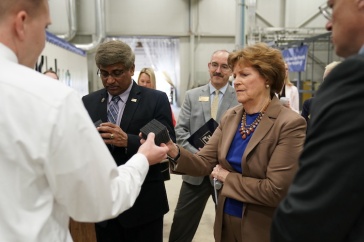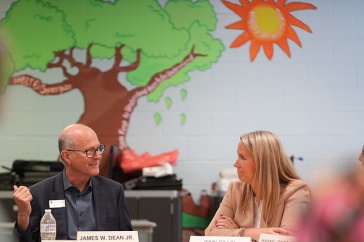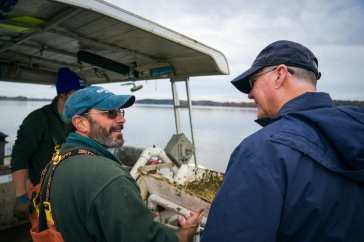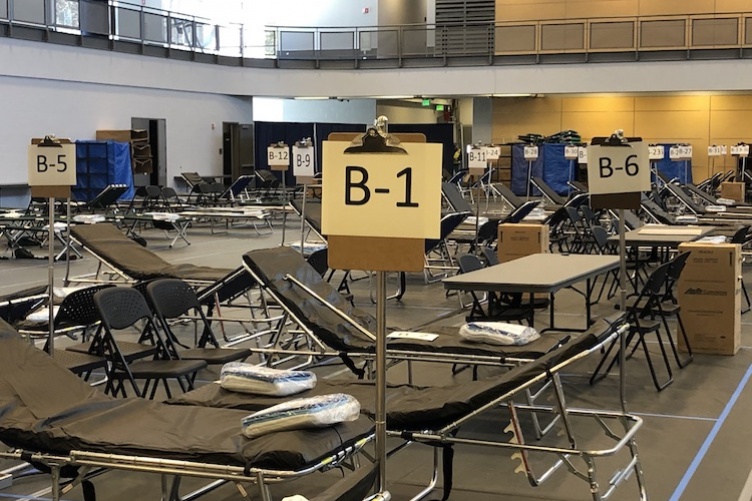
Organizing donations of personal protective equipment to distribute to local caregivers. Preparing the Hamel Rec Center to serve as an overflow facility for individuals who are well enough to be discharged from the hospital but not ready to return home. Using UNH 3D printers in their home spaces to create critical parts for protective face shields. Even as UNH’s faculty members conduct their spring semester classes online, providing students with a much-needed sense of normalcy, other members of the university community are coming together to meet many of the other unprecedented challenges created by the COVID-19 pandemic.
“I call this a conspiracy of care,” says UNH Police Chief Paul Dean, who is also serving as vice president of public safety and risk management for the campus. “What we’ve been doing is nothing short of the true essence of this community, supporting everyone from students to faculty, staff and alumni to state and local residents. I can’t think of anything better I can be doing as a police chief than the work we’re undertaking right now.”
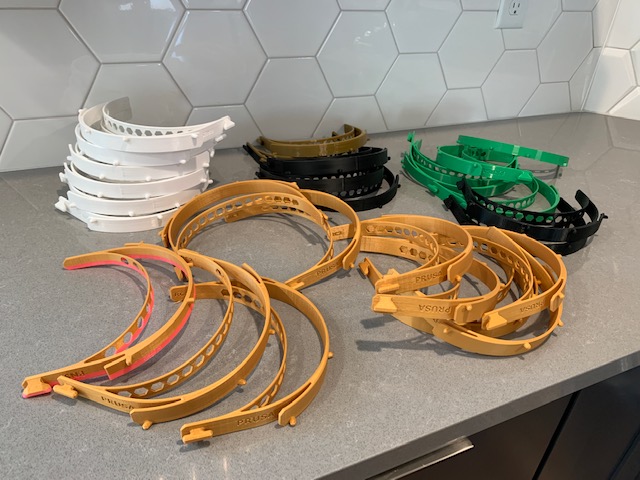
For Dean, some of that work dates all the way back to 2009, when a different pandemic — the H1N1 influenza virus — swept across the United States. Following that outbreak, Dean, the UNH university emergency group and environmental health and safety began to develop a strategic stockpile of protective gear, including gloves, surgical masks and N-95 respirators for caregivers on the frontline of any subsequent highly infectious outbreak.
“We knew it wasn’t a question of ‘if’ but rather of ‘when,’” Dean explains. When COVID-19 began to spread, he put out the call for supplies across the university, and between his stockpile and contributions from labs and departments campus wide, has collected some 45,000 pairs of gloves, 11,000 surgical masks, 4,800 N-95 respirators, 216 protective gowns and 38 Tyvek suits. These are being distributed to hospitals and health care facilities in the region as they are needed and are also available to first responders in Newmarket and Dover and to caregivers at Durham’s new RiverWoods retirement community.
In addition to providing the personal protective equipment (PPE) Dean’s team has collected, UNH is also helping create PPEs, with support from at least one generous alumnus. UNH’s Entrepreneurship Center (ECenter), the UNHInnovation ECenter Makerspace and other university facilities are deploying their 3D printers to print head bands for protective face shields that are being manufactured by the Portsmouth Naval Shipyard, with more than 150 completed to date.
“I call this a conspiracy of care....What we’ve been doing is nothing short of the true essence of this community.”
“It’s an all hands-on-deck effort,” says Ian Grant, executive director of the ECenter, noting that ECenter senior program manager Heather MacNeill is leading the charge. “And we couldn’t be doing it without the generosity of the Patten Family Foundation, whose support funds the printers and materials used in the Makerspace.”
Another all-hands-on-deck collaborative effort is the work that’s been done to convert the Hamel Rec Center into an emergency care site — one of seven prepared across the state at the request of Gov. Chris Sununu and the State Department of Health and Human Services. Working with four local hospitals — Exeter, Portsmouth Regional, Dover’s Wentworth-Douglass and Frisbie in Rochester — and under the direction of the New Hampshire National Guard, UNH has set up cots and care stations in the Hamel Rec basketball courts for up to 250 patients, to be used in the event these hospitals reach inpatient capacity and need a place to transfer individuals who are well enough to leave the acute-care setting but need several more days of medical support before returning home. Dean notes that volunteer caregivers are currently being identified and will include retired doctors and nurses living in the area. The facility, if needed, will be strictly for patients transferred from area hospitals and will not be open to the general public.
In addition, the university will be offering its services to support a drive-through COVID-19 testing site, if needed, and UNH dining will provide takeout meals for anyone sheltering on the Durham campus, which may include patients and quarantined health workers as well as the small subset of the student body — primarily international students — that was unable to find safe accommodations off campus. The university is also making its laboratory equipment available to medical personnel working to combat COVID-19, particularly those involved with efforts to ramp up New Hampshire’s testing capacity.
Dean and others have been working ceaselessly to meet the extraordinary demands of this unprecedented time — and doing so with an attitude that is unfailingly positive. “There’s a bunch of us who haven’t had a day off since March 8, putting in 12, 16 hour days, every day,” he says. “It’s all about getting to yes — rallying around President Dean to do what needs to be done.” For all the work and the stress, Dean says he’s never been prouder to be part of the UNH community. “This is a humanitarian mission, and the compassion on this campus is just unbelievable.”
Do you have gloves, masks or other protective equipment to donate? Dean is still collecting PPEs, which can be dropped off at the UNH Police Department, 18 Waterworks Road, Durham. If you’re a caregiver interested in volunteering, visit nhresponds.org.
-
Written By:
Kristin Waterfield Duisberg | Communications and Public Affairs

















































